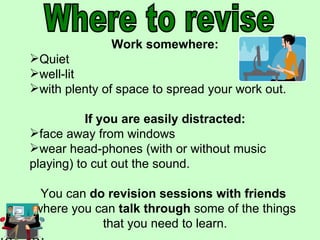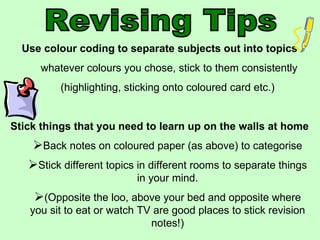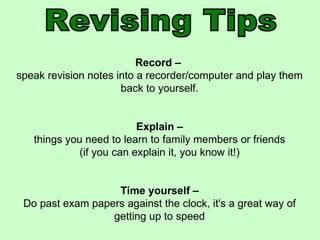Revision tips
- 1. Revision
- 2. Where to revise Work somewhere: Quiet well-lit with plenty of space to spread your work out. If you are easily distracted: face away from windows wear head-phones (with or without music playing) to cut out the sound. You can do revision sessions with friends where you can talk through some of the things that you need to learn.
- 3. How to begin Make a list of targets that you know you can reach and tick them off as you accomplish them Make a realistic revision plan you can stick to, with a daily outline that includes times for breaks and meals.
- 4. Revising Tips Use colour coding to separate subjects out into topics whatever colours you chose, stick to them consistently (highlighting, sticking onto coloured card etc.) Stick things that you need to learn up on the walls at home Back notes on coloured paper (as above) to categorise Stick different topics in different rooms to separate things in your mind. (Opposite the loo, above your bed and opposite where you sit to eat or watch TV are good places to stick revision notes!)
- 5. Revising Tips Record – speak revision notes into a recorder/computer and play them back to yourself. Explain – things you need to learn to family members or friends (if you can explain it, you know it!) Time yourself – Do past exam papers against the clock, it's a great way of getting up to speed




